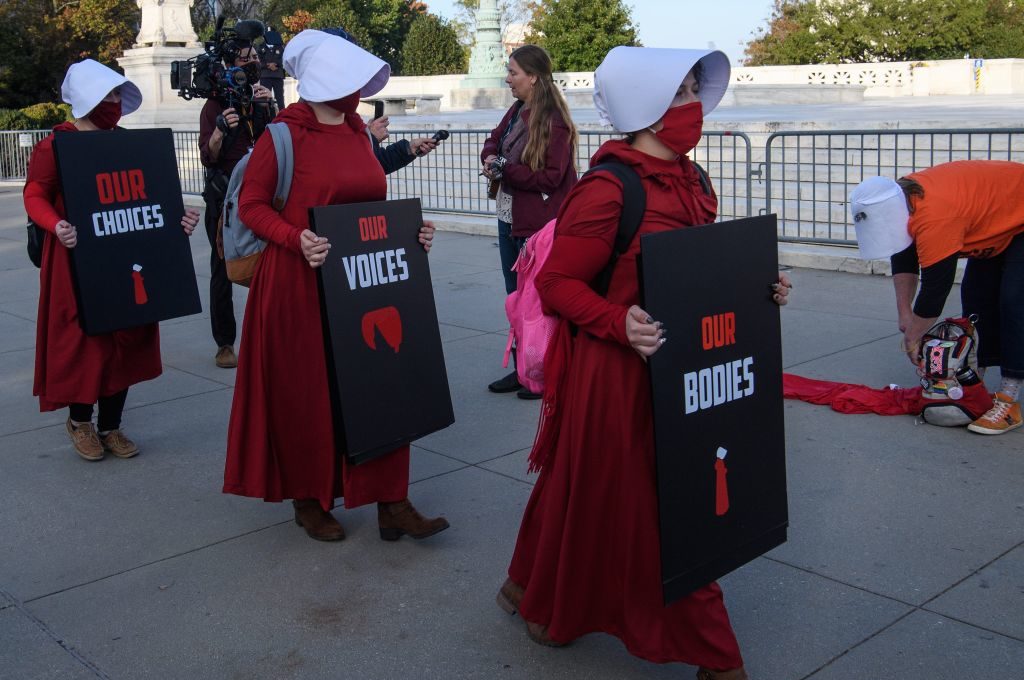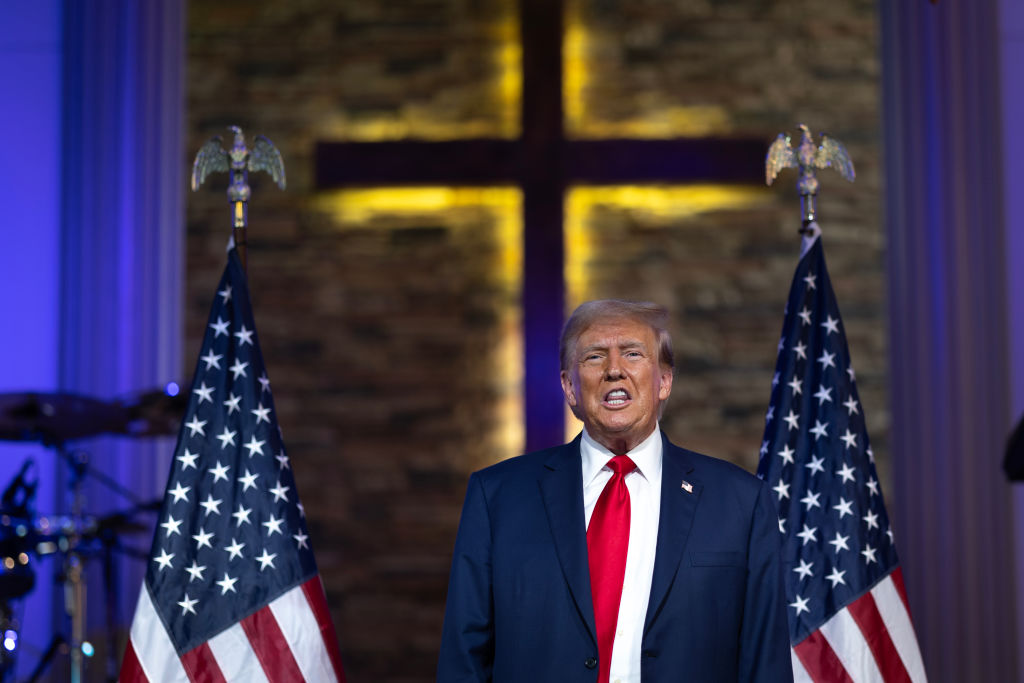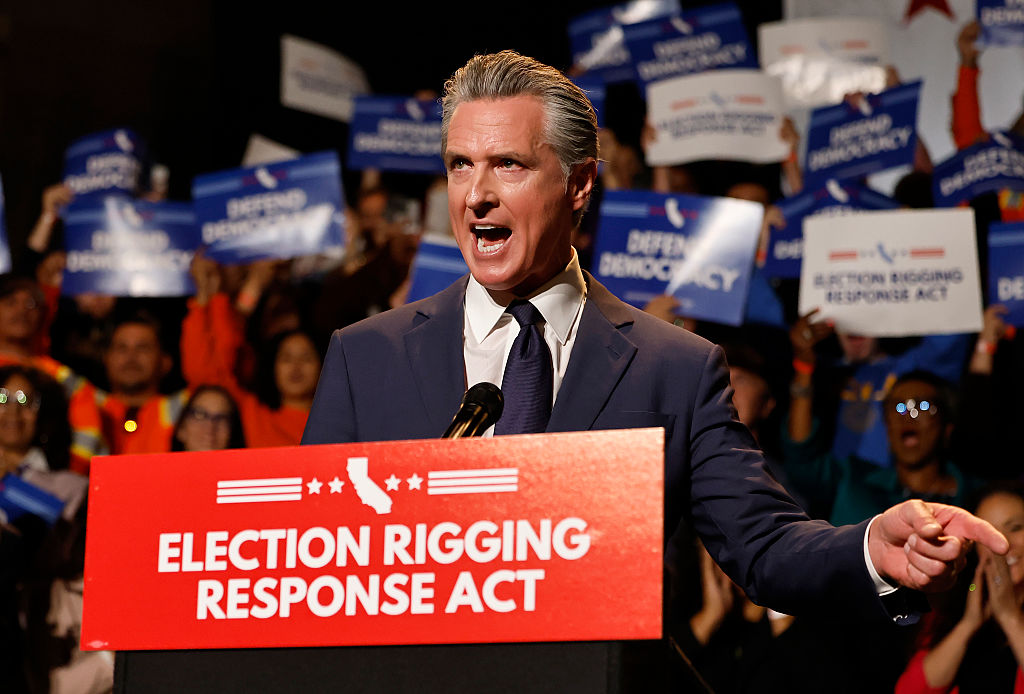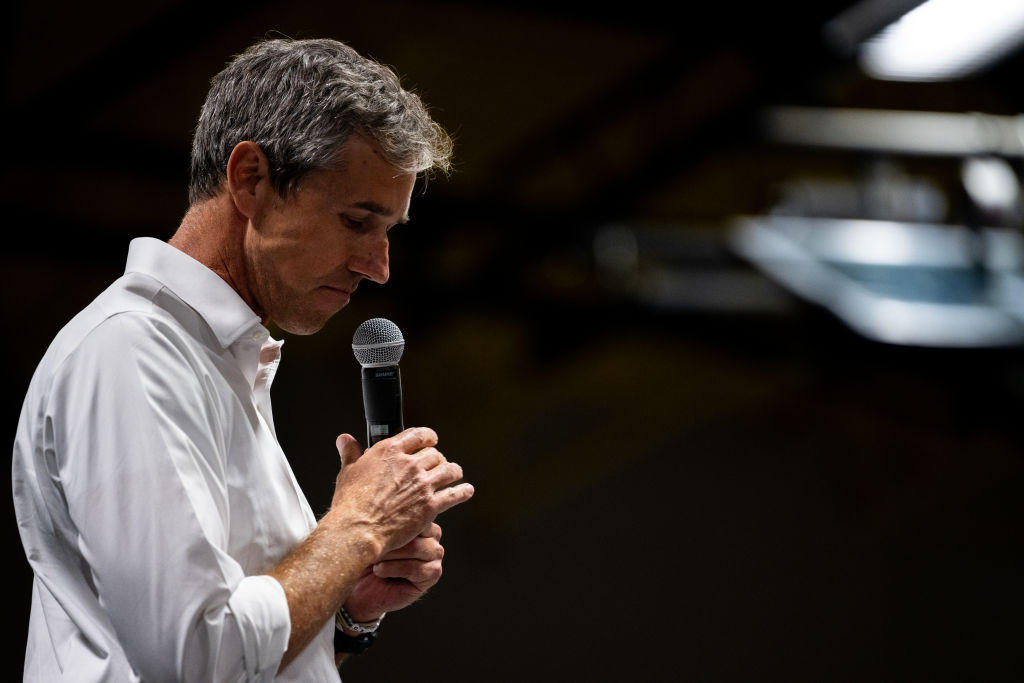If you read one book this fall, make it The Handmaid’s Tale TV show. And then don’t read another book, ever again, if you want to remain au courant on Twitter.
Margaret Atwood’s 1985 dystopian novel, and the more recent Hulu series, which depict a futuristic America called Gilead where women are treated as breeding chattel, have become a political obsession. They’re used as a kind of shorthand by the trendy left for the medieval theocracy my fellow pro-lifers and I are supposedly hammering together in our spare time. This totalitarian state is evidently being built over the scaffolding of the lawless Randian anarcho-syndicate we were accused of building just a few years ago. But then those kindly old ladies praying rosaries outside abortion clinics are nothing if not adaptive.
So it was that when the Supreme Court effectively greenlit Texas’s tough new anti-abortion law last week, we all knew which work of fiction our great cultural eye would swivel towards. Pro-choice demonstrators marched in Dallas wearing the red robes and white bonnets of handmaids. Celebrities from Rosie O’Donnell to Cher made Handmaid’s Tale comparisons. One vaccine-positive Twitter user, who ironically has the words ‘save lives’ in her handle, intoned, ‘This is why I couldn’t watch the Handmaid’s Tale…because I knew it could happen here.’
It was all a bit…melodramatic. A bit difficult to balance, this equation of democratically enacted restrictions on abortion in one state = an iron curtain is descending across our continent. But then that’s why I’m here. You see, I come from the Gilead of the future. I’ve been sent back to answer any questions you might have about our evil tyranny. And I can tell you that among the coercive measures we’ve taken in our Handmaid’s Tale-inspired state is: forcing people to actually read The Handmaid’s Tale.
The first thing to know about the left’s favorite dystopia is that its author, Margaret Atwood, is Canadian. And while Americans tend to view their neighbors to the north as a race of friendly, slightly offbeat polar bear jockeys, there’s a surprising current of anti-Americanism that courses just beneath the ice. As Atwood herself summed up the attitude of her childhood, ‘Americans were wimps who had a lot of money but did not know what they were doing.’ During the 1960s as an American literature student at Harvard, she studied another side of the US, our puritanical roots, our city-on-a-hill nationalism.
It’s no coincidence, then, that in The Handmaid’s Tale, the protagonist, Offred, ultimately escapes Gilead by fleeing to Canada à la the Underground Railroad. Atwood’s novel is, first and foremost, a Canadian’s attempt to make sense of, and cast judgment upon, the Republican Moral Majority politics of the 1980s, as embodied by Ronald Reagan and Phyllis Schlafly. In that sense, the feminist fangirls are correct. Gilead’s ruling class is meant to echo the American far right. Like the so-called trads of today, Atwood’s Commanders and Wives sneer at choice and rights while fetishizing authority and duties.
But it would also be cheap to dismiss The Handmaid’s Tale as a mere act of left-wing Canuck supremacy. Because both as literature and politics, it’s much more than that. Literarily, it’s our most observant dystopia. It takes its time, studies its world through a jeweler’s eyepiece, revels in that Updikean appreciation for the small and the ordinary. In this, it seeks to capture the perspective of a confined woman with her head held down, when the furniture and the flowers are what you know, and you know them well.
At first, this approach can feel plodding. About a third of the way through The Handmaid’s Tale, you start to wonder where it’s going, when the machinations of Gilead’s theocrats will finally come to light. The backstory is told through a series of choppy flashbacks and reflections, and even then Gilead’s origins remain somewhat mysterious (as they must have to the subjugated Offred). There is no climactic reveal as in, say, 1984 (‘“You are the dead,” said an iron voice behind them’). Instead there’s just the disorienting banality of slavery punctuated by an occasional memory of a better time.
It’s that slavery that is Atwood’s clearest target. Her bad guys are misogynists, yes, but the oppression she portrays has universal purchase. From Gilead’s gallows swing not just abortionists but Catholic priests, sentenced to death for the crime of being from a different Christian sect than the one in power. The takeaway is much more pluralism than progressivism, liberty than leftism. At one point, the compliant Aunt Lydia says of the old days, ‘We were a society dying of too much choice.’ By that, she doesn’t just mean the freedom to choose an abortion, but to choose one’s spouse, one’s work, one’s life, all of which have been snuffed out by the regime.
It shouldn’t be surprising, then, that last year Atwood was one of the signatories of the so-called Harper’s letter, the broadside against left-wing illiberalism that the woke treated as a kind of roll call for the old folks’ home. Or that she voiced concern over the excesses of the #MeToo movement. And to that end, it’s worth asking: who today is entangling sex in bureaucratic rules and identity constructs, as Gilead’s masters did? Who is leveraging mob justice to tear apart the accused, as literally happens at the end of The Handmaid’s Tale? Who rejects due process? Who has chosen dull ideological conformity over real pluralism?
For those of us who want to live under neither a Christian theocracy nor a zillionth-wave hall monitor Stasi — we’re picky like that — there is ultimately much to like in Atwood’s book. And even if her politics isn’t your cup of tea, the point is that her novel is about more than just politics. It’s time to read The Handmaid’s Tale, really read it, instead of skimming Pinterest quotes from the episode recaps of the TV show. It isn’t a classic, but it’s better than the backpack patch we’ve turned it into.

























